
Orchestras and Group Classes
Advanced Orchestra
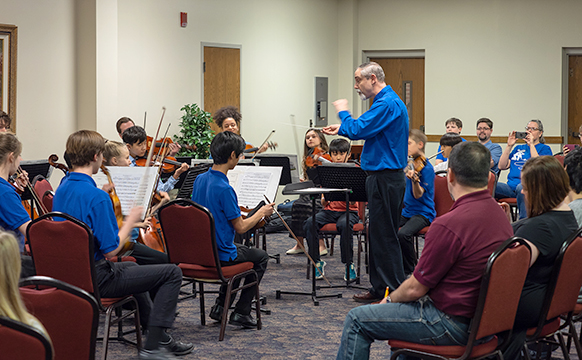
Advanced Orchestra performing in concert
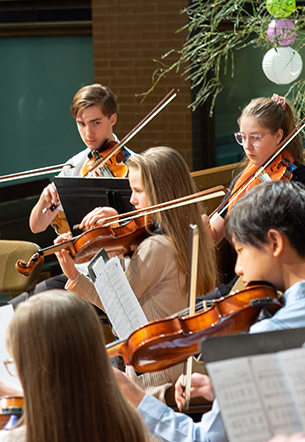
Violinists in performance
Intermediate Orchestra
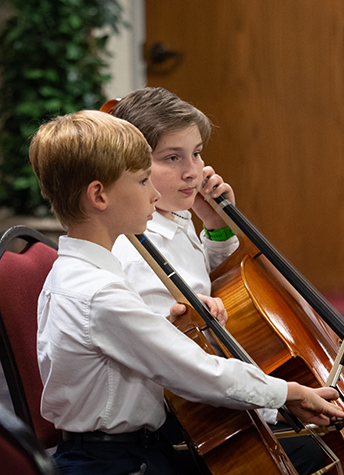
Members of the
Intermediate Orchestra
Led by Mrs. Tami King, Intermediate Orchestra introduces young string players to ensemble playing. The energetic rehearsals are the perfect platform for learning to follow a conductor, listen to others’ parts, follow cues for tempo, dynamics and style, and keep pace with a group. Students learn rehearsal etiquette, the value of contribution, and the joy of performance.
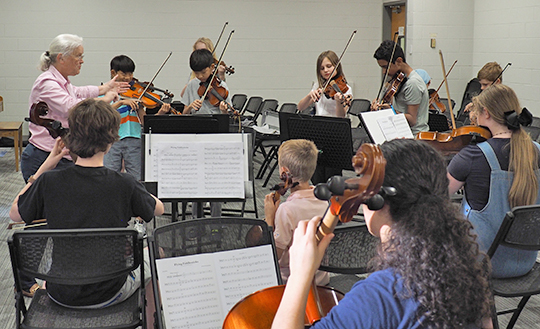
Intermediate Orchestra in rehearsal
Early Readers
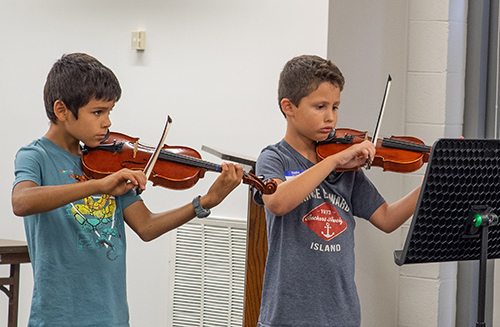
Early Readers using their music reading skills
Early Readers helps students solidify the skill of reading music, and adds the layer of reading in real time with others. Ms. Erica Robinson guides young readers through the process of learning to play new music at sight in an ensemble setting, and helps them dive deeper into visual music skills.
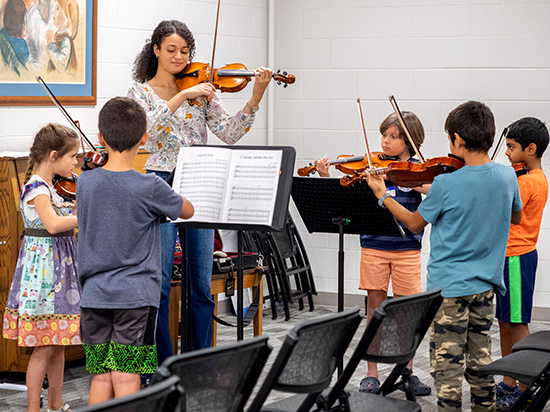
Reading music, a most valuable accomplishment.
Group Classes
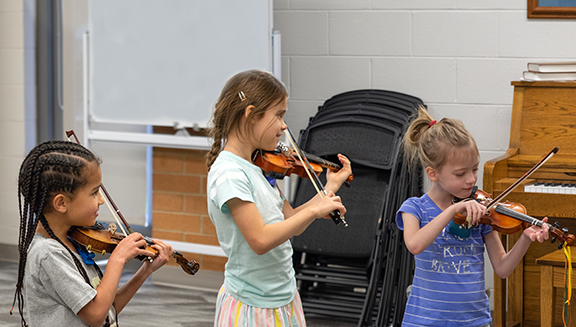
Group classes for the youngest musicians
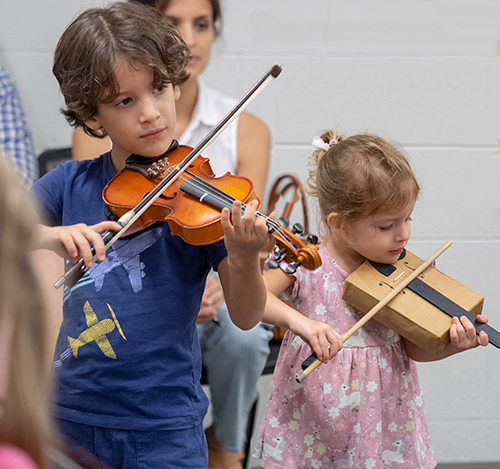
Learning in Suzuki Group Class
Music and Motion
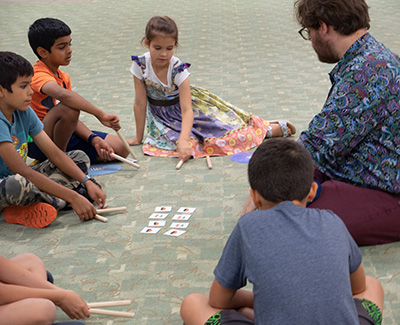
Rhythm Games
Many musical skills can be learned away from the instrument, and this class explores ways to put music into the body. Some of these are stepping in tempo and style, clapping rhythms, singing, conducting, listening, call and response, passing a pattern in tempo or identifying changes in what you hear. Mr. Robby Raney guides this class – giggles are frequent as we have fun exploring music together! (Parents can do this class with the kids!)
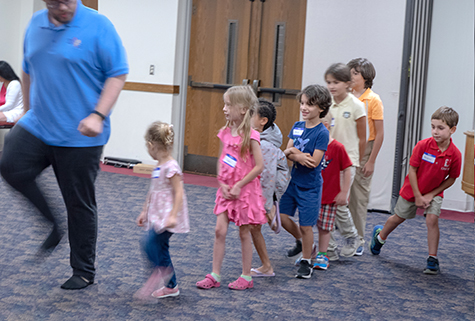
Music and Motion helps instill basic musical rhythm
Music Theory
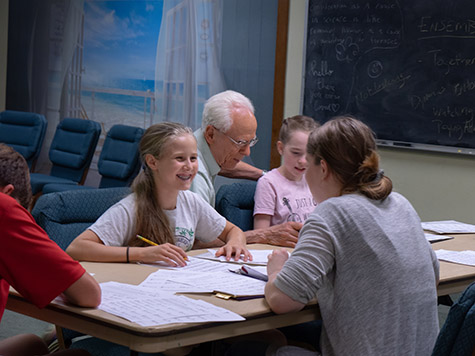
Dr. Ashton teaching SPS Music Theory 2 students
As grammar and language arts help us understand our spoken language, so music theory gives students a better understanding of the inner workings of music. Dr. Bruce Ashton and Mrs. Ellen Francisco take SoundPoint students through explorations into the structure and language of music. Two levels provide foundation and challenge for young musicians. This is the only SPS class that may be taken by non-SPS students.
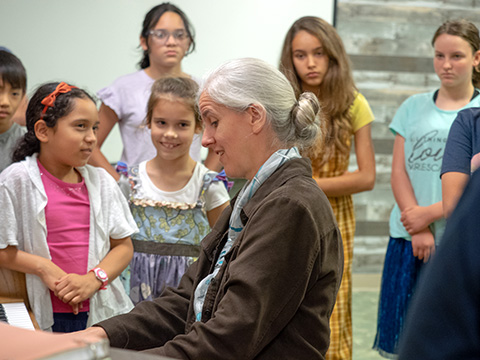
Mrs. Francisco helps Music Theory 1 students learn about scales and modes in music.
Parents' Circle
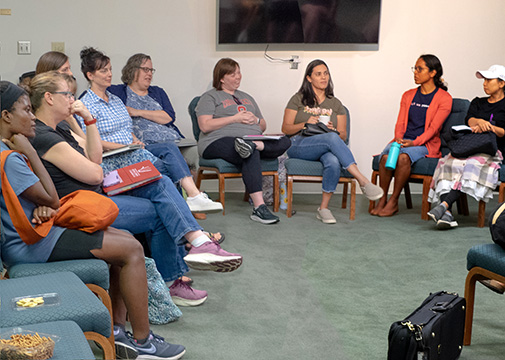
Parents exchanging ideas
We at SoundPoint Strings believe strongly in the value of the home, and the parents’ involvement in raising children. We believe that music is very important for children to experience, but its true value and power are magnified when parents are involved. Many parents don’t have a model for parental involvement in music beyond paying for lessons and pushing the child to practice, so these sessions give us a venue to discuss our role, special issues involved with rearing musical children. and how incredibly valuable it is to the child’s growth and the family’s stability
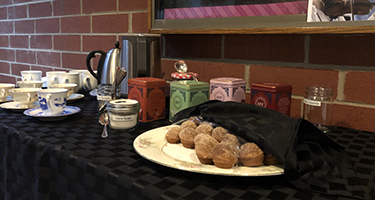
We are parent friendly